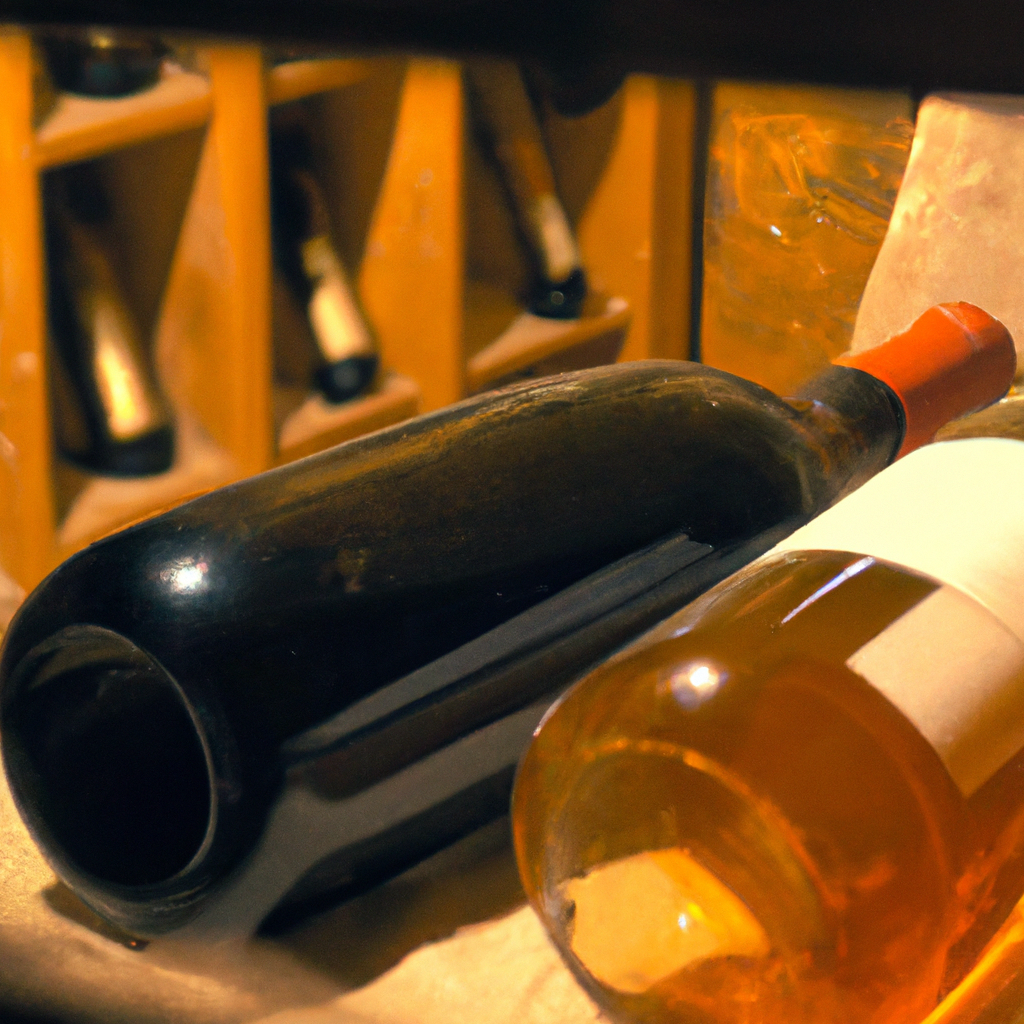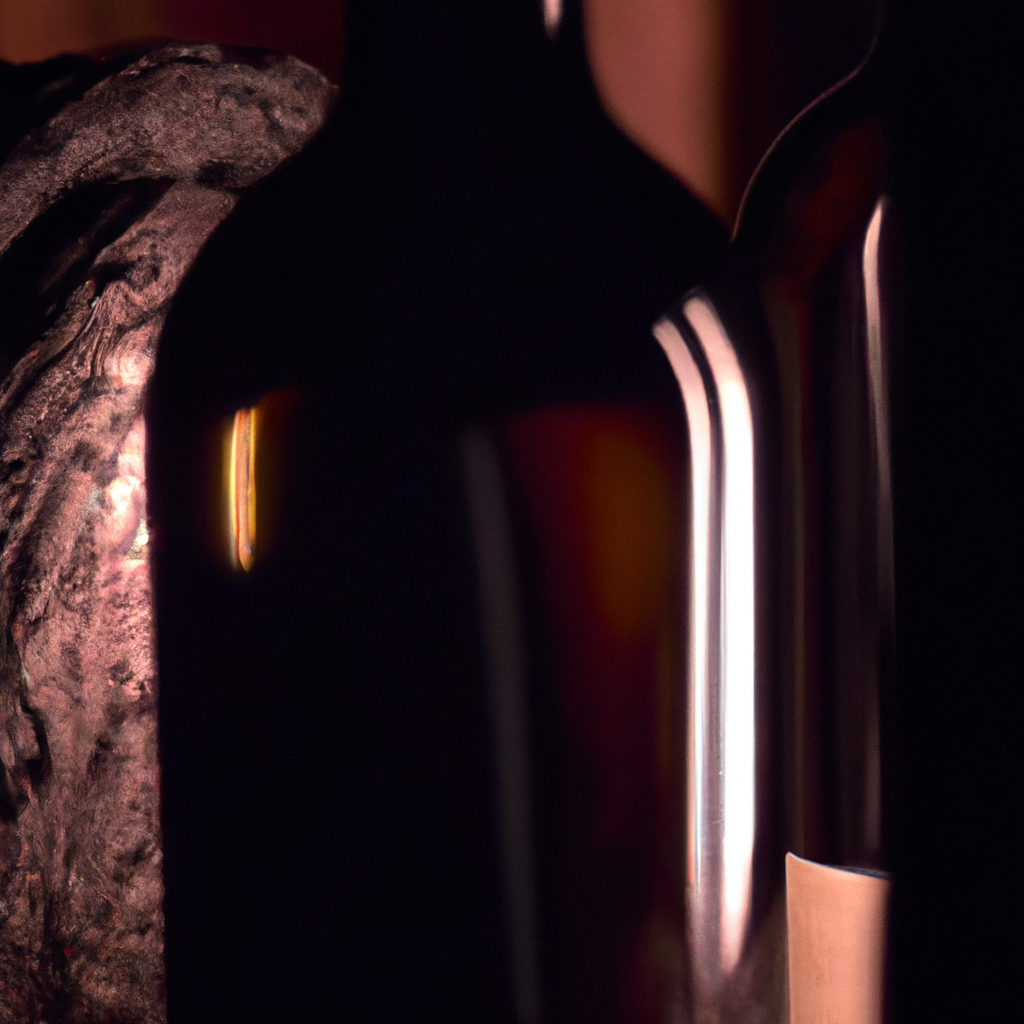
-
Article Summary
- Is Aging Your Wines Worth It?
- Key Takeaways
- Introduction: The Art and Science of Wine Aging
- The Potential Benefits of Aging Wine
- Factors Influencing a Wine’s Aging Potential
- The Importance of Proper Storage
- Is Wine Aging a Matter of Personal Preference?
- FAQ Section
- 1. What types of wine age well?
- 2. How long should I age my wine?
- 3. How should I store my wine for aging?
- 4. Can I age wine in my refrigerator?
- 5. Is aged wine better than young wine?
- Conclusion: To Age or Not to Age?
- Revisiting the Key Takeaways
Is Aging Your Wines Worth It?

[youtubomatic_search]
Key Takeaways
- Aging wine can enhance its flavor and complexity, but not all wines benefit from aging.
- The type of grape, the quality of the vintage, and the winemaking process all influence a wine’s aging potential.
- Proper storage conditions are crucial for successful wine aging.
- Most wines are designed to be consumed within a few years of production.
- Wine aging is a matter of personal preference and there is no definitive answer to whether it is worth it.
Introduction: The Art and Science of Wine Aging
Wine aging is a practice as old as winemaking itself, steeped in tradition and romanticism. But is it worth it? The answer is complex and depends on various factors, including the type of wine, its storage conditions, and personal taste preferences. This article delves into the intricacies of wine aging, providing insights into when it’s beneficial and when it’s not.
The Potential Benefits of Aging Wine
Aging wine can enhance its flavor, aroma, and complexity. As wine ages, its tannins soften, and it develops secondary and tertiary flavors that can add depth and richness. However, these benefits are not universal. According to a study by the American Association of Wine Economists, only a small percentage of wines improve with age. Most wines are designed to be consumed within a few years of production and do not benefit from extended aging.
Factors Influencing a Wine’s Aging Potential
The type of grape, the quality of the vintage, and the winemaking process all influence a wine’s aging potential. For instance, wines made from grapes with high tannin levels, such as Cabernet Sauvignon, have a greater potential for aging than those made from low-tannin varieties. Similarly, wines from exceptional vintages or those made using traditional winemaking methods often age better than others.
The Importance of Proper Storage
Proper storage conditions are crucial for successful wine aging. Wine should be stored at a constant temperature of around 55°F (13°C), with a relative humidity of 70%. It should also be kept away from light and vibrations, which can accelerate the aging process and degrade the wine’s quality. Improper storage can turn even the most age-worthy wine into vinegar.
Is Wine Aging a Matter of Personal Preference?
Ultimately, whether aging wine is worth it comes down to personal preference. Some people prefer the fresh, fruity flavors of young wines, while others appreciate the complexity and subtlety of aged wines. It’s also worth noting that aged wines can be an acquired taste, and not everyone enjoys them.
FAQ Section
1. What types of wine age well?
Red wines with high tannin levels, such as Cabernet Sauvignon and Nebbiolo, tend to age well. Some white wines, like Chardonnay and Riesling, can also benefit from aging.
2. How long should I age my wine?
Most wines are ready to drink when purchased and do not benefit from aging. However, certain high-quality wines can be aged for decades under the right conditions.
3. How should I store my wine for aging?
Wine should be stored at a constant temperature of around 55°F (13°C), with a relative humidity of 70%. It should also be kept away from light and vibrations.
4. Can I age wine in my refrigerator?
Regular refrigerators are not suitable for aging wine as they are too cold and dry. Specialized wine refrigerators or cellars are recommended.
5. Is aged wine better than young wine?
Whether aged wine is better than young wine is a matter of personal preference. Some people prefer the fresh, fruity flavors of young wines, while others appreciate the complexity and subtlety of aged wines.
Conclusion: To Age or Not to Age?
Wine aging is a complex process influenced by various factors, including the type of wine, its storage conditions, and personal taste preferences. While aging can enhance a wine’s flavor and complexity, not all wines benefit from it. Most wines are designed to be consumed within a few years of production, and improper storage can ruin even the most age-worthy wine. Ultimately, whether aging wine is worth it is a matter of personal preference.
Revisiting the Key Takeaways
- Aging wine can enhance its flavor and complexity, but not all wines benefit from aging.
- The type of grape, the quality of the vintage, and the winemaking process all influence a wine’s aging potential.
- Proper storage conditions are crucial for successful wine aging.
- Most wines are designed to be consumed within a few years of production.
- Wine aging is a matter of personal preference and there is no definitive answer to whether it is worth it.
[youtubomatic_search]






